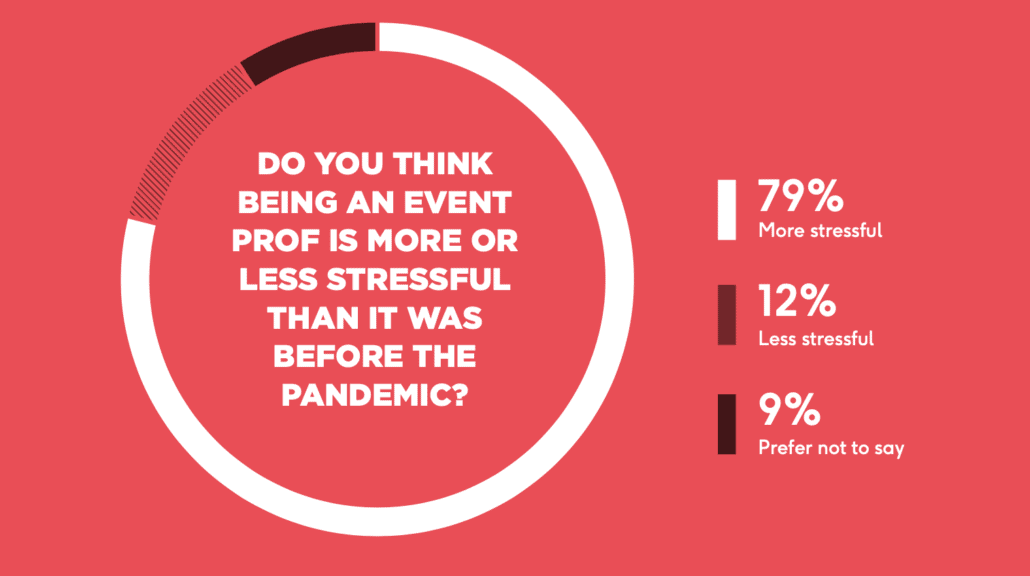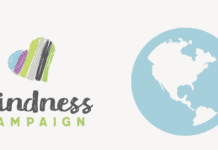 Event planning has always been stressful. But as job responsibilities and the numbers of events planners manage grow, so do planners’ stress levels.
Event planning has always been stressful. But as job responsibilities and the numbers of events planners manage grow, so do planners’ stress levels.
The good news is that in-person events are back in a big way. According to a newly released survey by IBTM World that is part of The Culture Creators Report 2023, almost three-quarters of event planners say the number of events they have organized has increased over the past three years. And they need to increase to counter the potential for alienation in today’s work-from-home environment: In-person events bring people together, enhance team performance and improve morale, respondents say.
Not surprisingly, an even greater number, 79 percent, also say their roles have become more stressful than they were in 2019. No wonder a study by the World Scholarship Vault lists event planner as the third most stressful job in the world for 2023, with only military service members and home health aide workers reporting a higher level of stress than event planners.

This may in part be because the majority say they’ve taken on more responsibilities since the pandemic, including managing all the tech, data and digital-related tasks that sprouted during the pandemic. Also not surprisingly, 90 percent of event planner respondents say they aren’t getting paid any more for taking on these extra responsibilities. When you factor inflation into the figure, event planners are in many cases actually experiencing a big decrease in real income, even as their job responsibilities continue to grow.
And, while 61 percent say they have also seen an increase in their budgets since the pandemic, almost a third say their budgets actually have decreased. Again, with the cost of everything event-related — most notably, food and beverage and AV — still experiencing an outsized hit from inflation even as it eases in non-event-related areas, it’s no wonder that more than half, 57 percent, of all respondents identify tight budgets as one of the toughest challenges — and potential stressors — they currently face.
“Right now, the thing that scares all of us the most is the continued increase cost,” says Kelly Gallagher, Co-Owner, Canvas Meeting + Incentives, in the report. “I really, really worry that if it keeps happening that clients may start to say, well, then we’re going to do one event instead of two, or we’re going to cut it in half. And that’s not what any of us want to see.”
“It’s getting more stressful because we’re in a precarious time in terms of budgets,” agrees Jessica Charles, Vice President, Programming and Events, Forbes, in the report. “It’s balancing rising costs with limited monetary resources and the need to give a great experience. That’s the really stressful aspect.”
Adds Nick Nagle, Marketing Manager at IBTM World, “It goes without saying that events are back with a bang post-pandemic, and while that often feels like a thing of the past, we are currently experiencing a different epidemic — burnout. Stress isn’t a new topic for event planners but we’re now working with a backdrop of new challenges. This is undoubtedly taking its toll on the industry, as our data highlights, and we need to do more to support amidst the increased pressures.”
There is reason to be concerned. Many event organizers lost staff during the pandemic and have yet to staff back up — and if the trend of feeling over-stressed and under-supported continues, they could face losing those still currently on the job. As research from The American Psychological Association points out, up to half of employees who feel undervalued now will be looking for a new gig within a year.
“The biggest risk is losing talent,” Charles says in the report. “People can give up and say, ‘I can’t do this anymore because it’s a very demanding job physically and mentally.’ My biggest concern is losing people that I know are fantastic events people, but they just can’t do it anymore.”
You May Also Be Interested In…
Planners: Yes, You Can Live Better and Stress Less!










